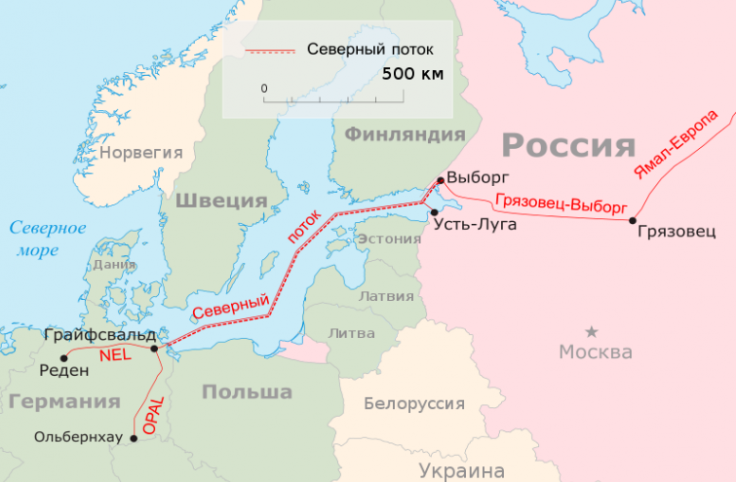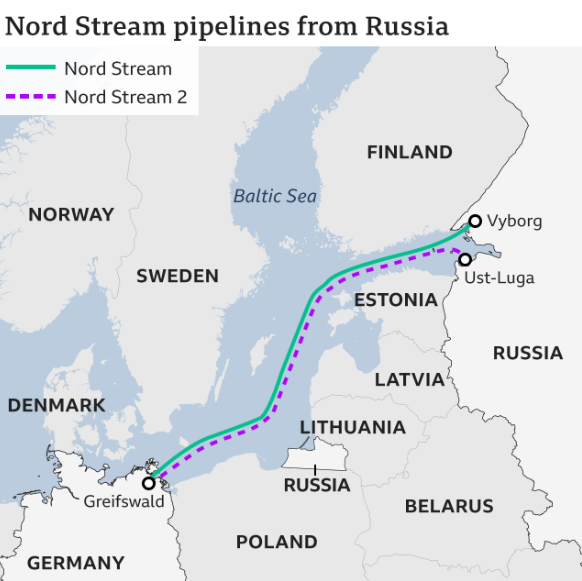Pulitzer Prize-winning investigative journalist Seymour Hersh has made the sensational claim that the United States was behind the bombing of the Nord Stream 1 gas pipeline in September last year.
Writing in his blog on Substack on Wednesday, Hersh said US Navy divers planted explosives at the pipelines in June last year, under the guise of BALTOPS 22 NATO exercise. The article says that the bombing of the Nord Stream pipeline was the culmination of months-long planning and preparations by the US. President Joe Biden and all his top leadership team participated in a series of top secret discussions in the lead-up to the act.

"Last June, the Navy divers, operating under the cover of a widely publicized mid-summer NATO exercise known as BALTOPS 22, planted the remotely triggered explosives that, three months later, destroyed three of the four Nord Stream pipelines, according to a source with direct knowledge of the operational planning," Hersh wrote in his blog.
The news of a pair of explosions at the underwater Nord Stream pipelines that connect Russia and Germany was reported on September 28 last year. The Swedish National Seismic Network (SNSN) registered two distinct blasts in the vicinity of Bornholm. Automatic monitoring picked up the first blast, which registered the equivalent of an earthquake magnitude of 1.8, at 2:03 a.m. A second, larger blast, registering an equivalent earthquake magnitude of 2.3, came at 7:04 p.m.
The news broke even as massive plumes of gas bubbles broke the surface of the Baltic Sea. Interestingly, a former Polish Defense Minister, Radek Sikorski, said the United States could have been behind the sabotage of the Nord Stream pipeline. Russia too said the US had a motive as it looks at selling more natural gas to Europe.

However, western media put Russia on the dock, with some experts saying that the blast was Moscow's act of sabotage. A few weeks before the explosion, Russia had indefinitely stopped natural gas supplies to Europe through the Gazprom pipeline, worsening the energy crisis looming over Europe ahead of the winter.
Now, the investigation by Hersh says that the US had planned the attack for months and executed it with the help of regional ally Norway.
"On September 26, 2022, a Norwegian Navy P8 surveillance plane made a seemingly routine flight and dropped a sonar buoy. The signal spread underwater, initially to Nord Stream 2 and then on to Nord Stream 1. A few hours later, the high-powered C4 explosives were triggered and three of the four pipelines were put out of commission. Within a few minutes, pools of methane gas that remained in the shuttered pipelines could be seen spreading on the water's surface and the world learned that something irreversible had taken place," Hersh wrote.
What Was American Motive?
Hersh says that the plan to bomb Nord Stream pipeline germinated months before the Russian invasion of Ukraine in February last year. By December, it looked like a certainty that Russia would attack Ukraine. President Joe Biden was vociferous in warning about an impending war.
The Washington strategists calculated that if a war breaks out, Russia would hold leverage due to the gas pipelines that offer cheap energy to much of Europe. With the countries in western Europe, mainly Germany, being addicted to cheap Russian gas, they would probably not be forthcoming in supporting the American plan to arm Ukraine to teeth, the White House calculated.
It then became imperative for the US to thwart the key pipeline and forestall the 'weaponization of gas' by Russia.

"It's a tremendous opportunity to once and for all remove the dependence on Russian energy and thus to take away from Vladimir Putin the weaponization of energy as a means of advancing his imperial designs. That's very significant and that offers tremendous strategic opportunity for the years to come, but meanwhile we're determined to do everything we possibly can to make sure the consequences of all of this are not borne by citizens in our countries or, for that matter, around the world," Secretary of State Blinken had said in September, responding to questions about the energy crisis in Europe.









